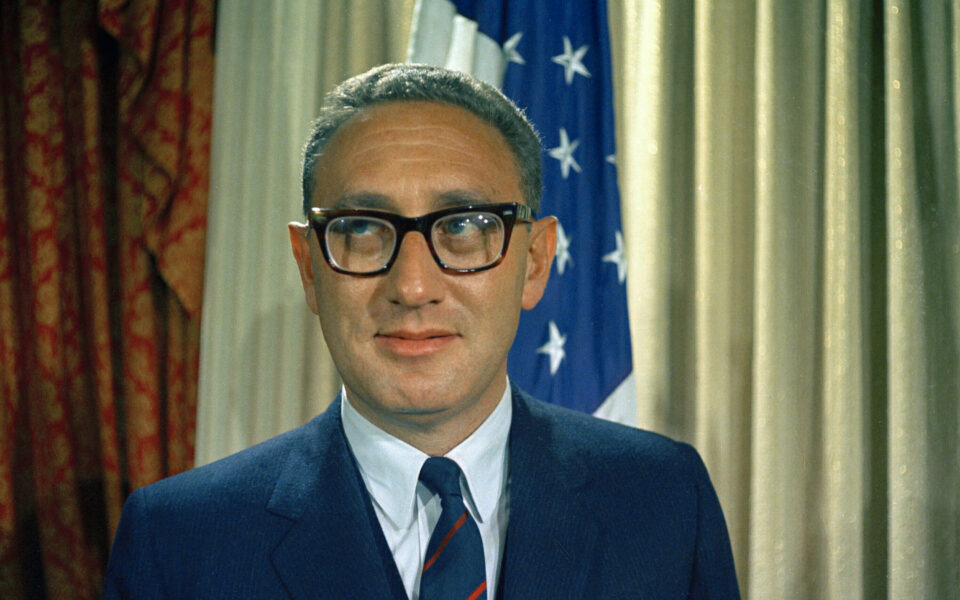Greece, Cyprus and Kissinger

Henry Kissinger, the former US secretary of state who passed away on Thursday, took with him the secrets that pursued him like ghosts, making him steer clear of the Cyprus issue. Based on personal experiences linked to an obsession with the events of 1974, I can attest that this historic episode greatly perturbed him. In reality, Greece and Cyprus became victims of his cynical realism. Initially, Greece was viewed solely through the lens of the Cold War and the Middle East situation. His interest lay in having a pro-American government in power, assisting the US and Israel in times of crisis – nothing more. This stance became evident in meetings during the tenure of the formidable Dimitris Ioannidis, the “invisible dictator.” Anyone urging him to pressure the regime for the restoration of democracy received the monotonous reply, “This is the State Department, not a political science department.”
Cyprus paid the price because Kissinger was slow to realize how close Greece and Turkey came to war in the Aegean in the spring of 1974. He not only refused to halt Ankara’s initial invasion but also gave the nod to then Turkish Prime Minister Bulent Ecevit. Furthermore, he declined to compel Turkey to remain in its initially captured area and avoid the second phase of the invasion. His highly cynical argument was, “There is no American reason why the Turks should not have one third of Cyprus.”
He was incensed at being targeted by Greeks in America immediately afterward. When briefing his new boss, President Gerald Ford, thousands of Greeks protested against him outside the White House. In every meeting with Prime Minister Konstantinos Karamanlis or Makarios of Cyprus, he expressed annoyance at how Greeks and Cypriots perceived him. Those who knew him well were puzzled by the fact that other, more internationally known cases, such as Chile or Vietnam, destabilized him much less. Every time, and there were many, I attempted to discuss 1974 with him, he clung to cliches about being consumed by Watergate. Then he would vanish, or, as he once told me, say: “I have nothing to gain by talking to you. You have already condemned me.”
We naturally assess Kissinger from our own perspective. However, we cannot overlook his status as an IR guru. His analysis was always exceptional, realistic, and occasionally prophetic. I recall a speech he delivered a decade ago, contemplating how his grandson would navigate decision-making in an era when his primary life experiences revolve around facing a mobile or computer screen. This was well before the widespread discourse on these phenomena began.
One last thing to consider. Confronting the mirror of history and acknowledging their mistakes is one of the most challenging tasks for a nation. I am inclined to believe that for all his sins or crimes, Kissinger, in some respects, served as a facilitator. He functioned as an alibi, enabling us to downplay our own errors, internal conflicts, the Byzantinisms between Athens and Nicosia, and missed opportunities.





